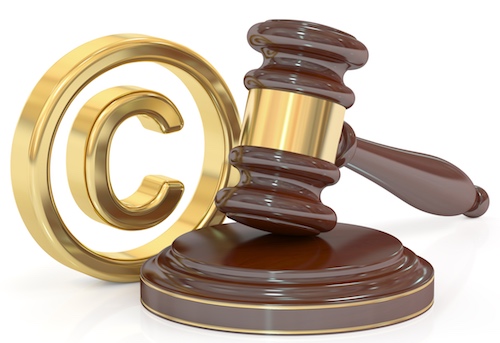“To adopt a discovery accrual rule in copyright-infringement suits, while imposing the limit on retrospective relief that the Second Circuit perceived in Petrella, would be a largely self-defeating approach.” – U.S. Solicitor General
 The U.S. Supreme Court today granted a request by the U.S. Solicitor General to participate in oral argument as an amicus in Warner Chappell Music v. Nealy, which challenges a circuit court ruling that, under the discovery accrual rule, monetary damages for infringement under the Copyright Act are available for acts occurring outside of the Copyright Act’s three-year statute of limitations. The Solicitor General is urging the Supreme Court to affirm the lower ruling and uphold the Eleventh Circuit’s interpretation of the High Court’s ruling in Petrella v. Metro-Goldwyn-Mayer (2013) over competing interpretations in the Second Circuit.
The U.S. Supreme Court today granted a request by the U.S. Solicitor General to participate in oral argument as an amicus in Warner Chappell Music v. Nealy, which challenges a circuit court ruling that, under the discovery accrual rule, monetary damages for infringement under the Copyright Act are available for acts occurring outside of the Copyright Act’s three-year statute of limitations. The Solicitor General is urging the Supreme Court to affirm the lower ruling and uphold the Eleventh Circuit’s interpretation of the High Court’s ruling in Petrella v. Metro-Goldwyn-Mayer (2013) over competing interpretations in the Second Circuit.
Circuits Split Over Start of Recovery Period Under Discovery Accrual Rule
The U.S. Court of Appeals for the Eleventh Circuit issued its decision on interlocutory appeal in Nealy last February. In that ruling, the appellate court held that the discovery accrual rule allows plaintiffs to collect retrospective relief for infringements occurring outside of the Copyright Act’s three-year limit against civil actions for infringement claims, codified at 17 U.S.C. § 507(b). The appellate court found that the plain language of Section 507, which requires that an action commence “within three years after the claim accrued,” does not impose a limitation on recovery for claims that are timely under the discovery accrual rule.
Warner Chappell’s petition for writ of certiorari, granted by the Supreme Court last September, argued that the Eleventh Circuit’s decision deepened a circuit split on the application of the discovery accrual rule to Section 507(b). The rule tolls the statute of limitations until the date that the plaintiff copyright owner could have reasonably discovered the infringement with due diligence. While the Eleventh Circuit joined the Ninth Circuit in determining that the three-year recovery period begins from the date of the claim’s accrual, the Second Circuit has ruled in cases like Sohm v. Scholastic (2020) that recovery begins from the date that the lawsuit was filed even when the discovery rule tolls the statute.
The circuit split on the discovery accrual rule stems from different interpretations of Petrella, which focused on the application of equitable laches to claims filed within the Copyright Act’s statute of limitations. While Petrella did not pass on the question of the application of the discovery rule to the accrual of copyright infringement claims, circuit courts have been left to interpret whether Petrella’s holding requires strict adherence to the three-year limitation on recovery in cases where the discovery rule tolls the statute.
Petrella’s Core Reasoning Undermines Second Circuit’s Interpretation of Section 507(b)
The Solicitor General’s brief, filed with the Supreme Court on January 12, notes that Section 507(b) is the only provision of the Copyright Act placing a time limit on a plaintiff’s ability to recover monetary damages for past infringement. According to the Solicitor General, Petrella does not establish that monetary relief is precluded when a claim is timely filed, leading the federal government to advocate that the Supreme Court should reject the Second Circuit’s approach:
“To adopt a discovery accrual rule in copyright-infringement suits, while imposing the limit on retrospective relief that the Second Circuit perceived in Petrella, would be a largely self-defeating approach… Although the Second Circuit in Sohm adhered to its prior view that a discovery rule governs the question whether suit is timely filed under Section 507(b)… its holding as to damages largely deprives the discovery rule of any meaningful practical effect.”
Arguing that the holding in Petrella was confined to the facts of the case, the Solicitor General noted that the Supreme Court did not have the opportunity to address the interaction of the discovery accrual rule with Section 507(b)’s statute of limitations as presented in Warner Chappell. The plaintiff in Petrella, who owned the copyright to the 1980 film Raging Bull, was long aware of MGM’s unauthorized reproductions of the movie. In Warner Chappell, however, plaintiff Nealy contended at the trial level that he could not have learned that a former music industry partner was licensing the music catalog of a company Nealy co-founded until after serving a pair of prison sentences for cocaine possession between 1989 and 2015.
Although the Supreme Court granted certiorari on Warner Chappell’s petition, the Solicitor General points out that the Court’s reformulation of the question presented presumes that the discovery rule applies to infringement claims for purposes of Section 507(b). The Solicitor General contends that a judge-made rule limiting remedies would contradict both the statute and the core reasoning of Petrella, which found laches unavailable because the Copyright Act’s statute of limitation itself takes delay into account. The Solicitor General added that the separate accrual rule properly balances the interests of copyright defendants by ensuring that recovery for each act of infringement is limited to three years, even if the discovery of the infringement occurs at a later date.

![[IPWatchdog Logo]](https://ipwatchdog.com/wp-content/themes/IPWatchdog%20-%202023/assets/images/temp/logo-small@2x.png)

![[Advertisement]](https://ipwatchdog.com/wp-content/uploads/2024/04/UnitedLex-May-2-2024-sidebar-700x500-1.jpg)
![[Advertisement]](https://ipwatchdog.com/wp-content/uploads/2024/04/Artificial-Intelligence-2024-REPLAY-sidebar-700x500-corrected.jpg)
![[Advertisement]](https://ipwatchdog.com/wp-content/uploads/2024/04/Patent-Litigation-Masters-2024-sidebar-700x500-1.jpg)

![[Advertisement]](https://ipwatchdog.com/wp-content/uploads/2021/12/WEBINAR-336-x-280-px.png)
![[Advertisement]](https://ipwatchdog.com/wp-content/uploads/2021/12/2021-Patent-Practice-on-Demand-recorded-Feb-2021-336-x-280.jpg)
![[Advertisement]](https://ipwatchdog.com/wp-content/uploads/2021/12/Ad-4-The-Invent-Patent-System™.png)






Join the Discussion
No comments yet.